Six Harvard students named Marshall Scholars
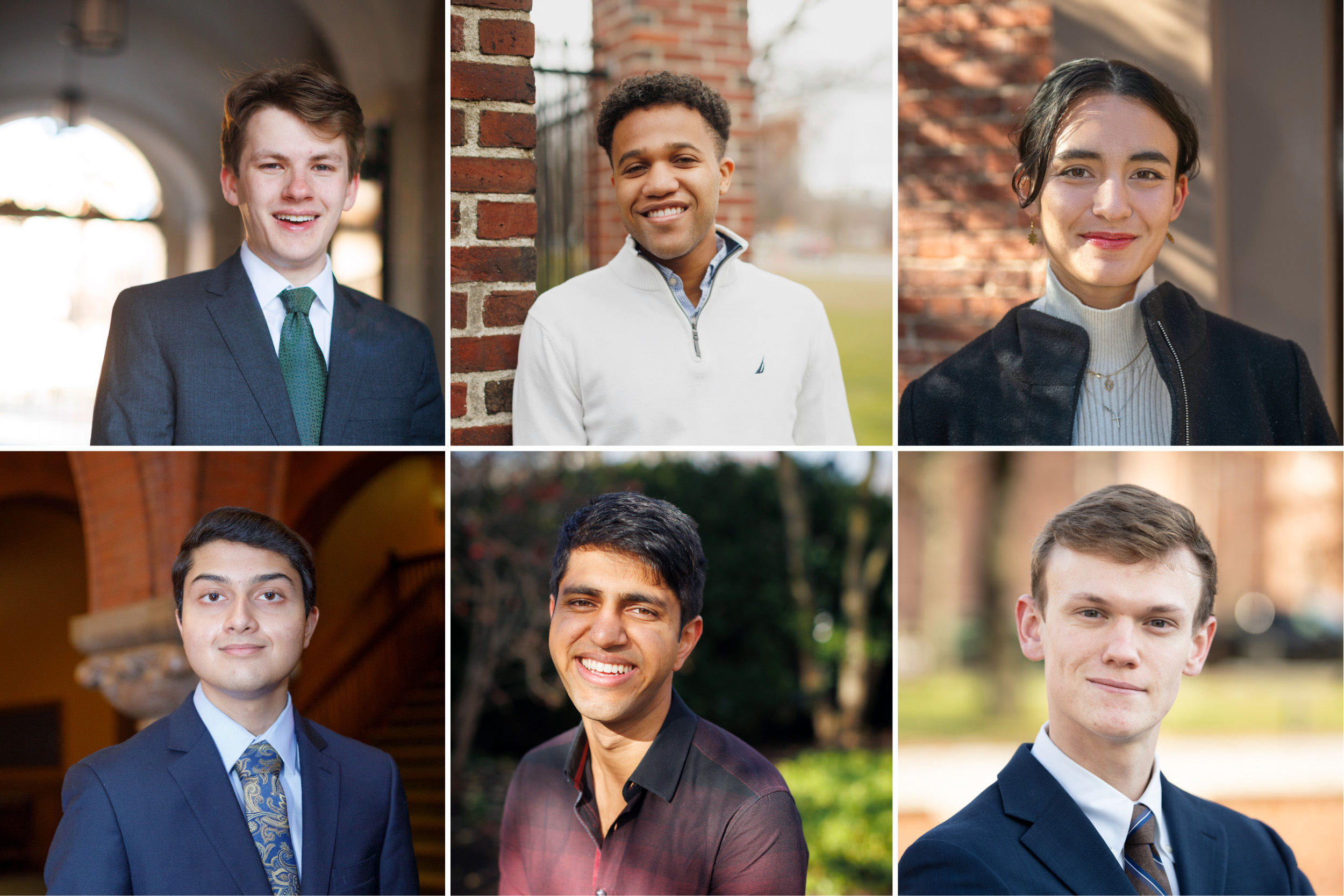
Alexander Dyer [clockwise from top left], Ronald “Trey” Sullivan III, Eleanor Wikstrom, Richard Allen, Simar Bajaj, and Sarosh Nagar.
Photos by Stephanie Mitchell, Jon Chase, Niles Singer, and Kris Snibbe/Harvard Staff Photographers
Plans for two years of U.K. graduate study include work on disabilities and homelessness, theoretical computer science, and histories of enslavement
Ronald “Trey” Sullivan III was on an Amtrak train with his friends, headed for the Harvard-Yale football game in November, when he received the call telling him that he’d won a 2024 Marshall Scholarship.
“It’s such a one-in-a-million chance,” Sullivan said. “Everyone’s super qualified so you never know what’s going to happen. I feel really lucky and really honored to have received this scholarship.”
Simar Bajaj was showering when the call arrived but quickly discovered the news after he noticed the missed call and voicemail. He was visiting his hometown of Fremont, California, and was able to replay the message for his parents.
“It was really great being back home with my family and hearing those words, ‘Congratulations! You’re a 2024 Marshall Scholar,’” Bajaj recalled.
Six Harvard College students or recent graduates — Sullivan, Bajaj, Richard Allen, Alexander Dyer, Sarosh Nagar, and Eleanor Wikstrom — were among the 51 students nationwide named to the Marshall Class of 2024. The recipients will head to the U.K. next year for two years of graduate studies at the college or university of their choice.
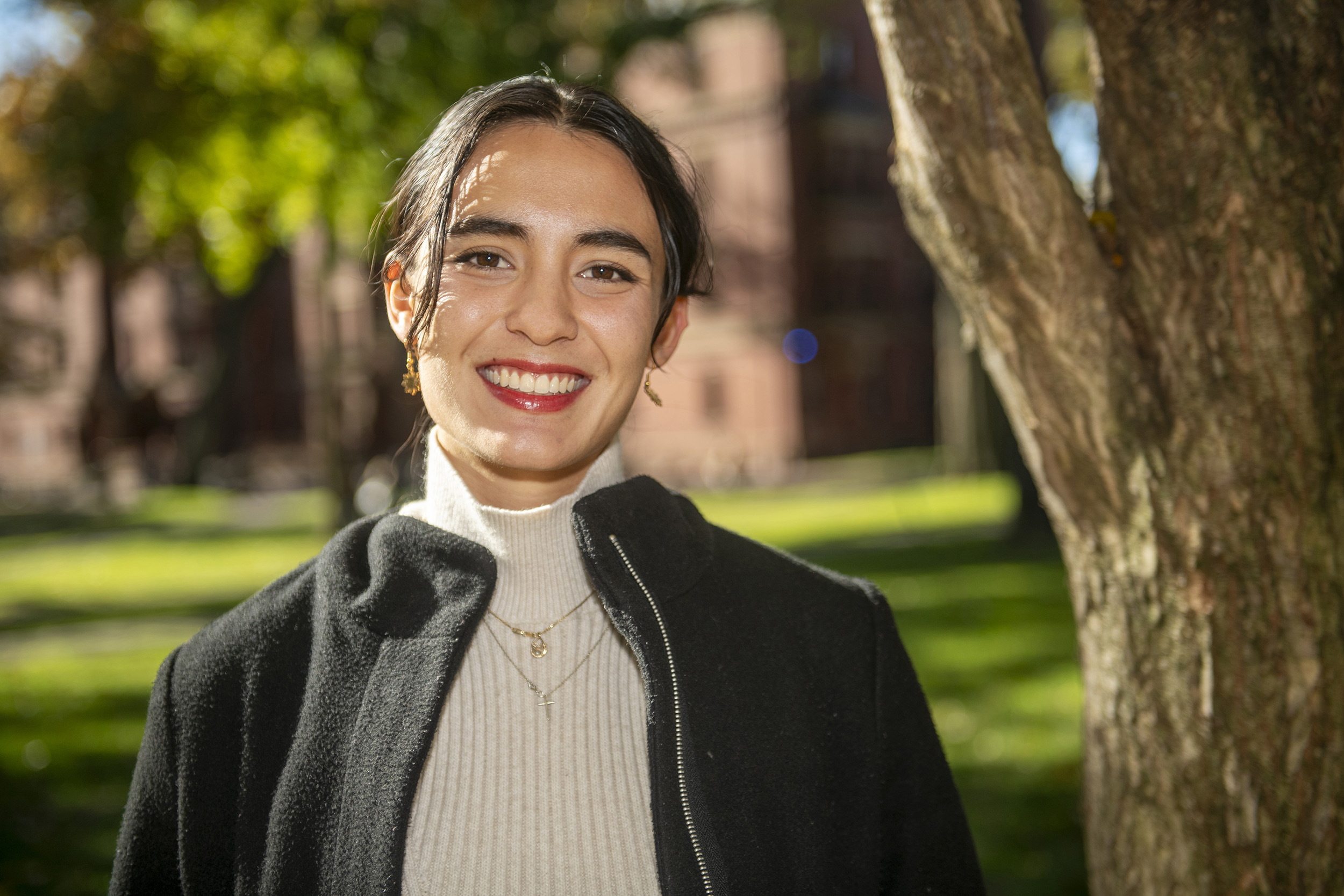
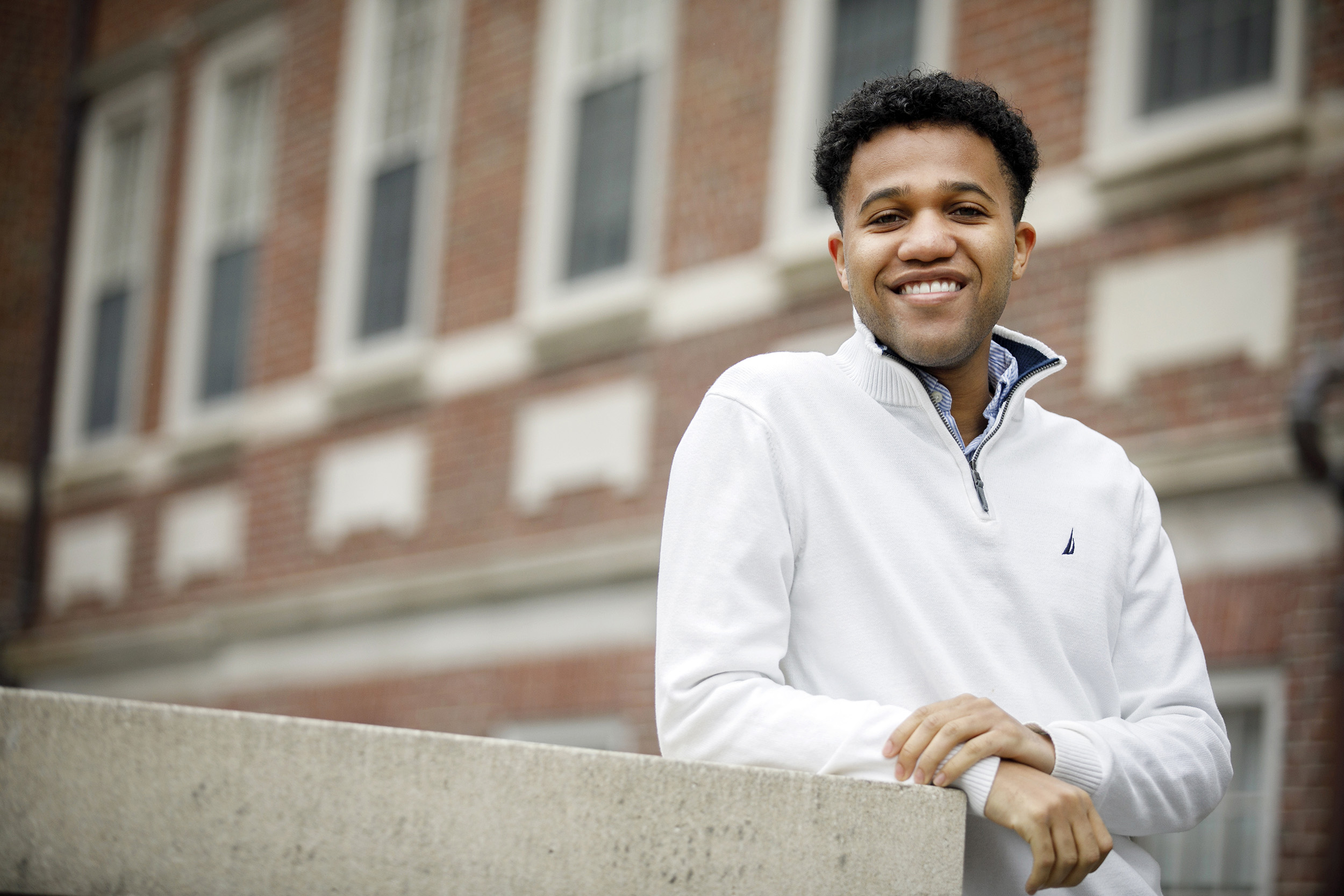
Wikstrom and Sullivan.
Photos by Jon Chase and Stephanie Mitchell/Harvard Staff Photographers
Allen, a 2022 graduate who concentrated in physics and mathematics, with a secondary in computer science, is currently pursuing a Ph.D. in theoretical physics at MIT while serving as a resident tutor in Cabot House. A native of Clarksville, Virginia, Allen plans to pursue a master’s degree in theoretical computer science at the University of Oxford before returning to his Ph.D. program.
“As someone from a very small town, who at many times in their academic career has felt out of place at institutions of higher learning, I think [winning the Marshall] is a very powerful thing,” Allen said. “It’s a tremendous privilege, and I hope I can use it to widen academic circles that often feel exclusive.”
Sullivan, a history and literature concentrator, has been studying the organization of labor and distribution of land in the French Caribbean after France abolished slavery in its colonies in 1848, and how 19th-century ideologies shaped the way Black labor laws and land rights were legislated. After Harvard, he plans to pursue a Ph.D. in history at the University of Cambridge, where he’ll do a comparative study between the French Caribbean, the British Caribbean, and the American South in the years directly following the emancipation of enslaved residents.
“I love research, but a really valid critique of academia is the way it can be isolated in an ‘ivory tower,’” Sullivan said. “Scholarship should be used to help communities that need it the most.”
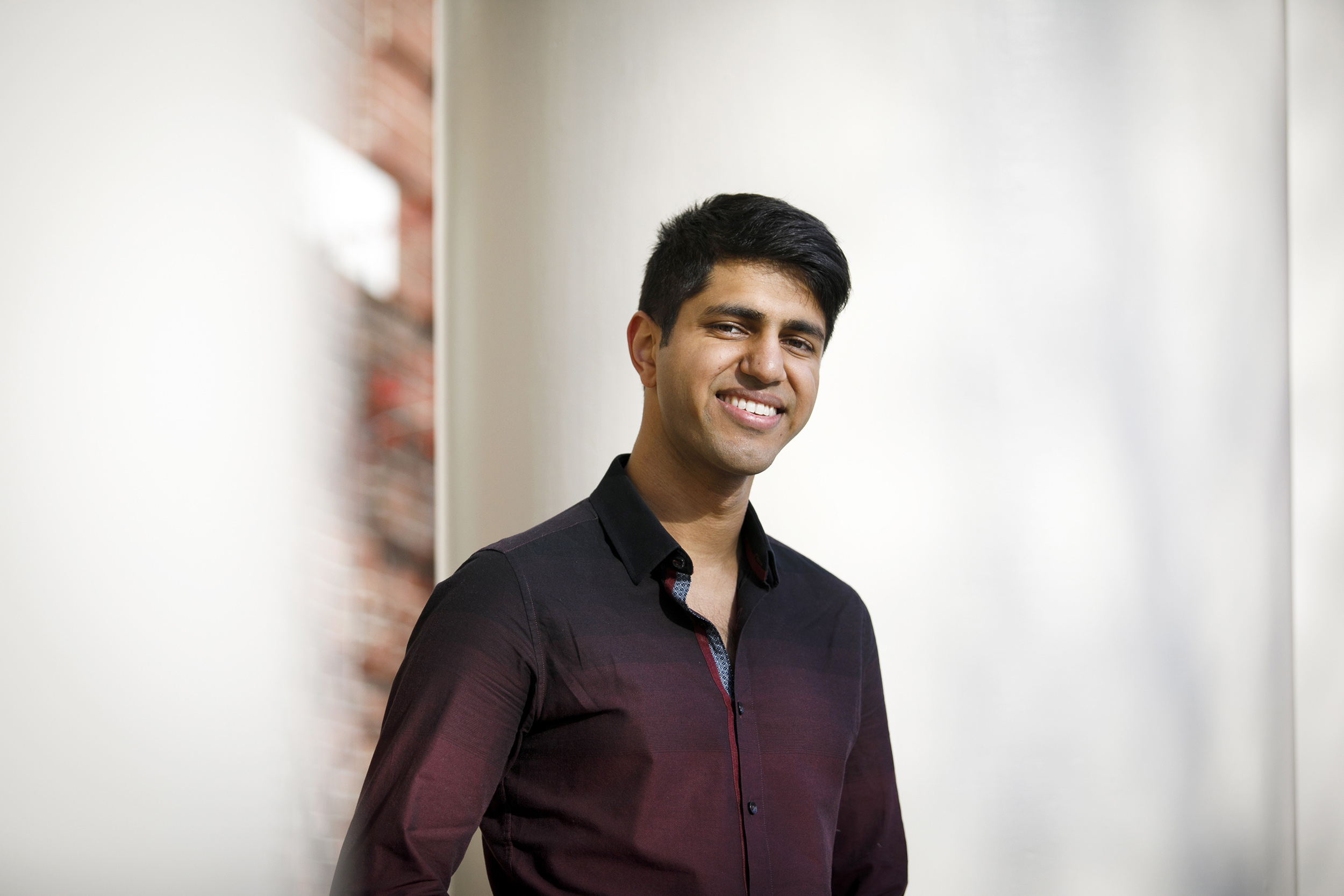
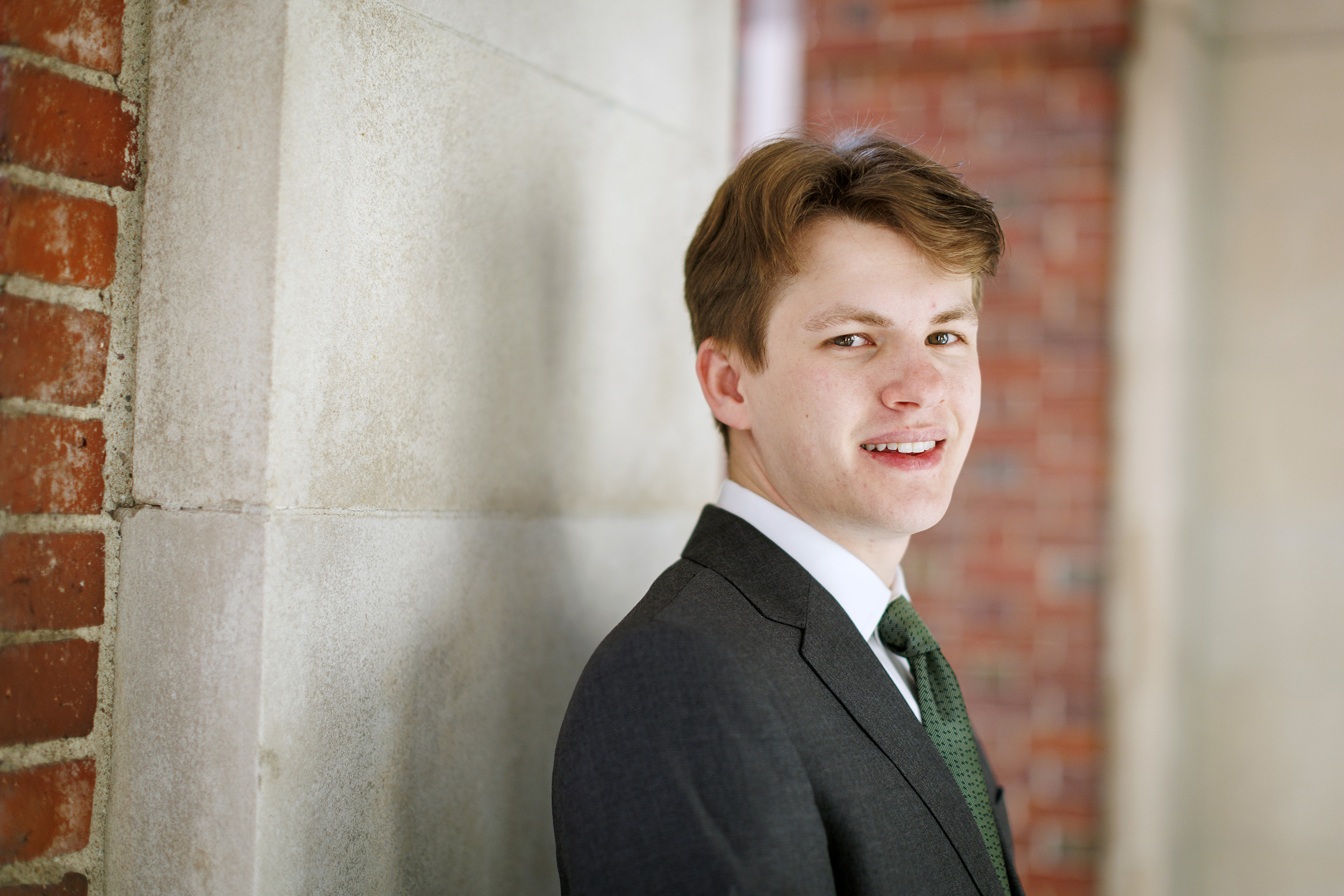
Bajaj and Dyer.
Photos by Stephanie Mitchell/Harvard Staff Photographer
Dyer, originally from Tampa, Florida, is concentrating in electrical engineering with a secondary in chemistry and is also studying for a concurrent master’s in electrical engineering.
He has focused on clinical neuroscience and worked to expand medical education surrounding vestibular dysfunction and cochlear-implant surgery. Dyer said he became motivated to study and improve biomedical devices in part because his father, a military veteran, suffered hearing loss and other impairments.
“I’m very interested in the ability of medical devices to learn from people and to be designed around them,” Dyer said. He also wants to improve access to prostheses in low-resource settings.
Next year, Dyer plans to pursue an M.Phil. in health, medicine, and society at the University of Cambridge, with emphasis on investigating how disability interacts with people who are experiencing homelessness.
Wikstrom, a social studies concentrator from Oakland, California, has been active on campus as a member of the Harvard Crimson editorial board and the Harvard Undergraduate Philippine Forum.
She played an instrumental role in advocating for the launch of Harvard’s new Filipino (Tagalog) language courses. Wikstrom’s thesis research focuses on the English-only system of education implemented under U.S. colonial rule in the Philippines at the turn of the 20th century.
Also selected as a 2024 Rhodes Scholar, Wikstrom has opted to accept that award to study global and imperial history and U.S. history at Oxford.
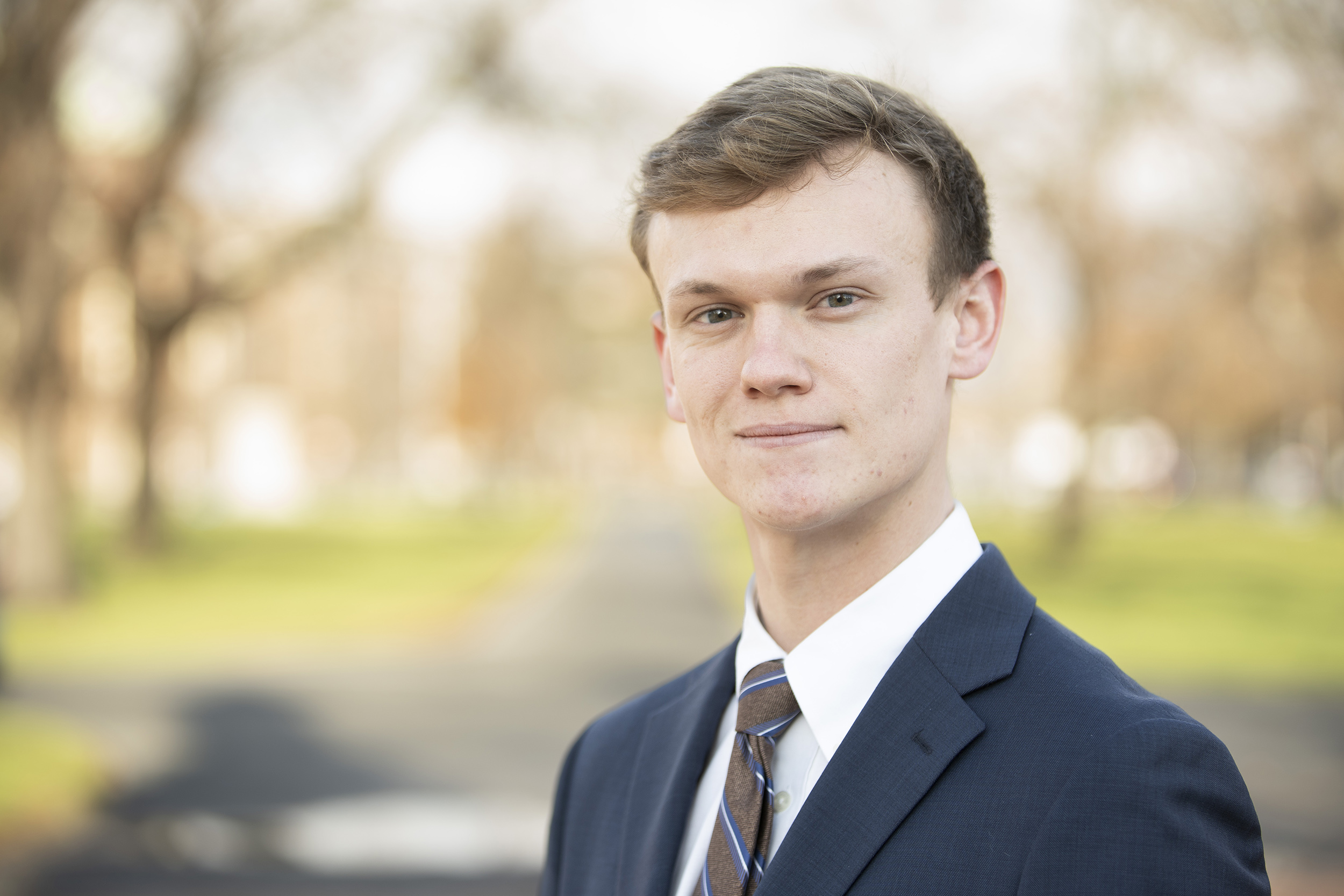
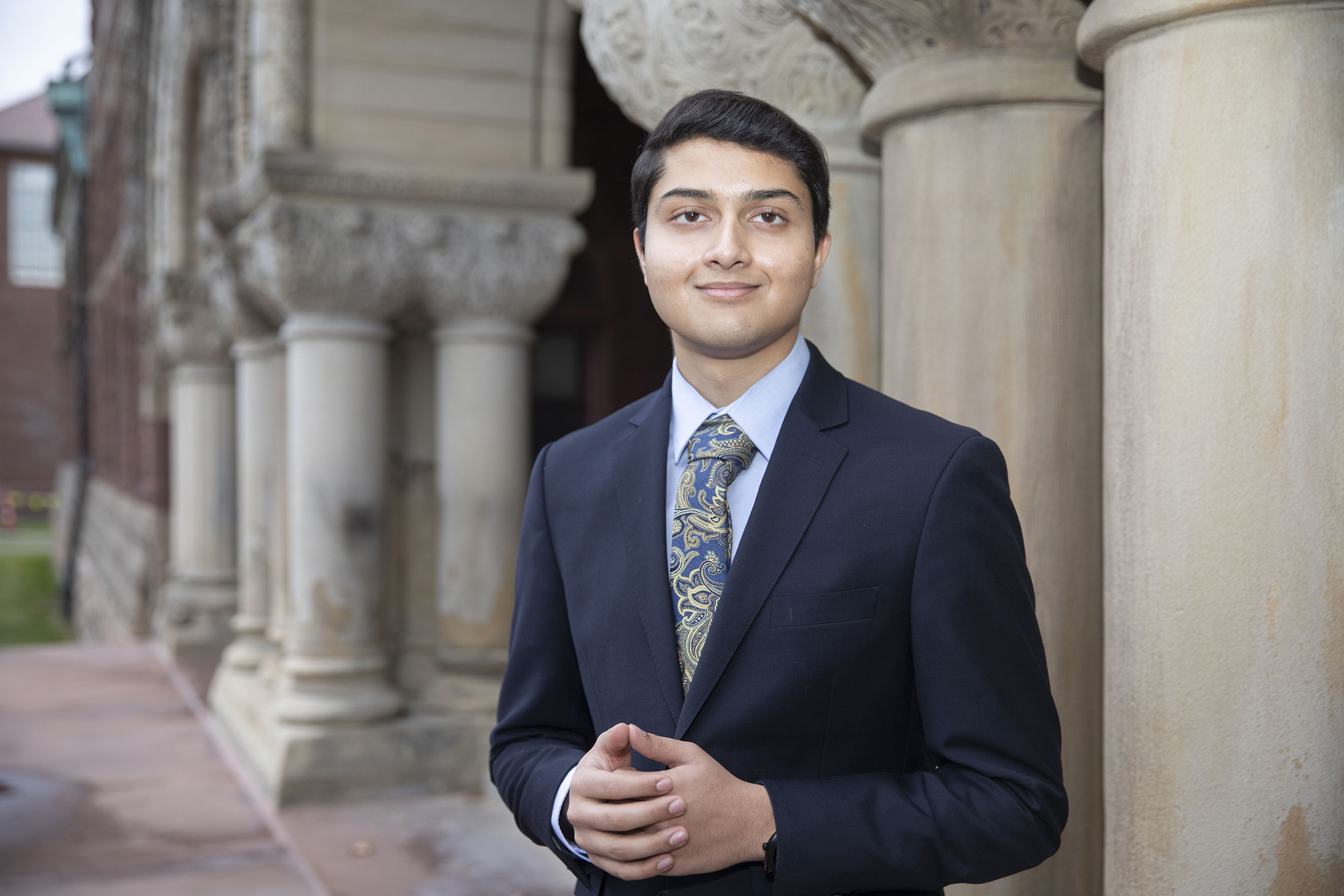
Allen and Nagar.
Photos by Niles Singer and Kris Snibbe/Harvard Staff Photographers
The students say the scholarship will help them pursue their ultimate goal of making the world a better, safer, and more equitable place.
Nagar, a chemistry and economics concentrator from Chicago, is interested in improving the development of scientific research and innovation and keeping it in line with ethical principles and values.
Nagar plans to study innovation, public policy and public value at University College London for one year, and hopes to study global governance and diplomacy at Oxford for the second.
“Consistently, some new technology comes out and completely reframes how we should think about our lives and our well-being,” Nagar said. “It’s important that we figure out how to use them to actually change the world to make people’s lives better but also to set some guardrails so they aren’t developed in a way that could pose harm to people in the future.”
Bajaj, a chemistry and history of science concentrator, is passionate about public health — he has conducted research on health equity, obesity, and lung cancer and written lung cancer awareness resolutions that were passed by the U.S. Senate.
He is also passionate about science communication and science journalism, crediting the stories he’s written for The Atlantic, Time, The Washington Post, and other outlets with spreading the knowledge of science to audiences outside academia.
Bajaj plans to pursue a master’s in global health science and epidemiology at Oxford for the first year and hopes to study creative writing at the University of East Anglia for the second. He hopes to later return to the U.S. for medical school.
“I’ll talk to patients who are going through the worst thing you can imagine, and they’ll be like, ‘I’m one of the lucky ones,’” Bajaj said. “That’s what inspires me, that in the face of terrible health inequities, people maintain hope and resilience and belief in a better tomorrow. My goal is to help realize that better tomorrow.”




